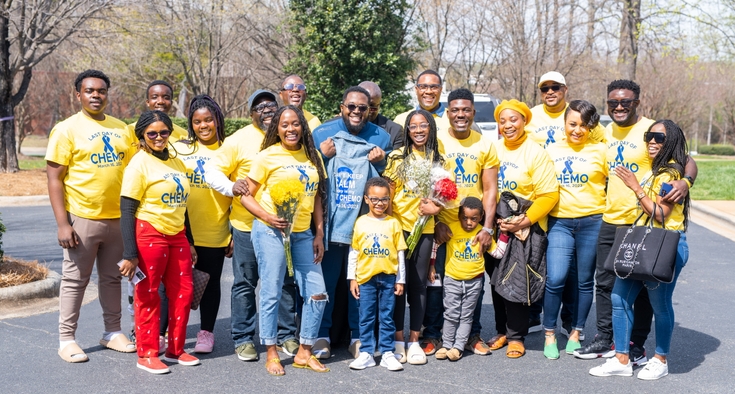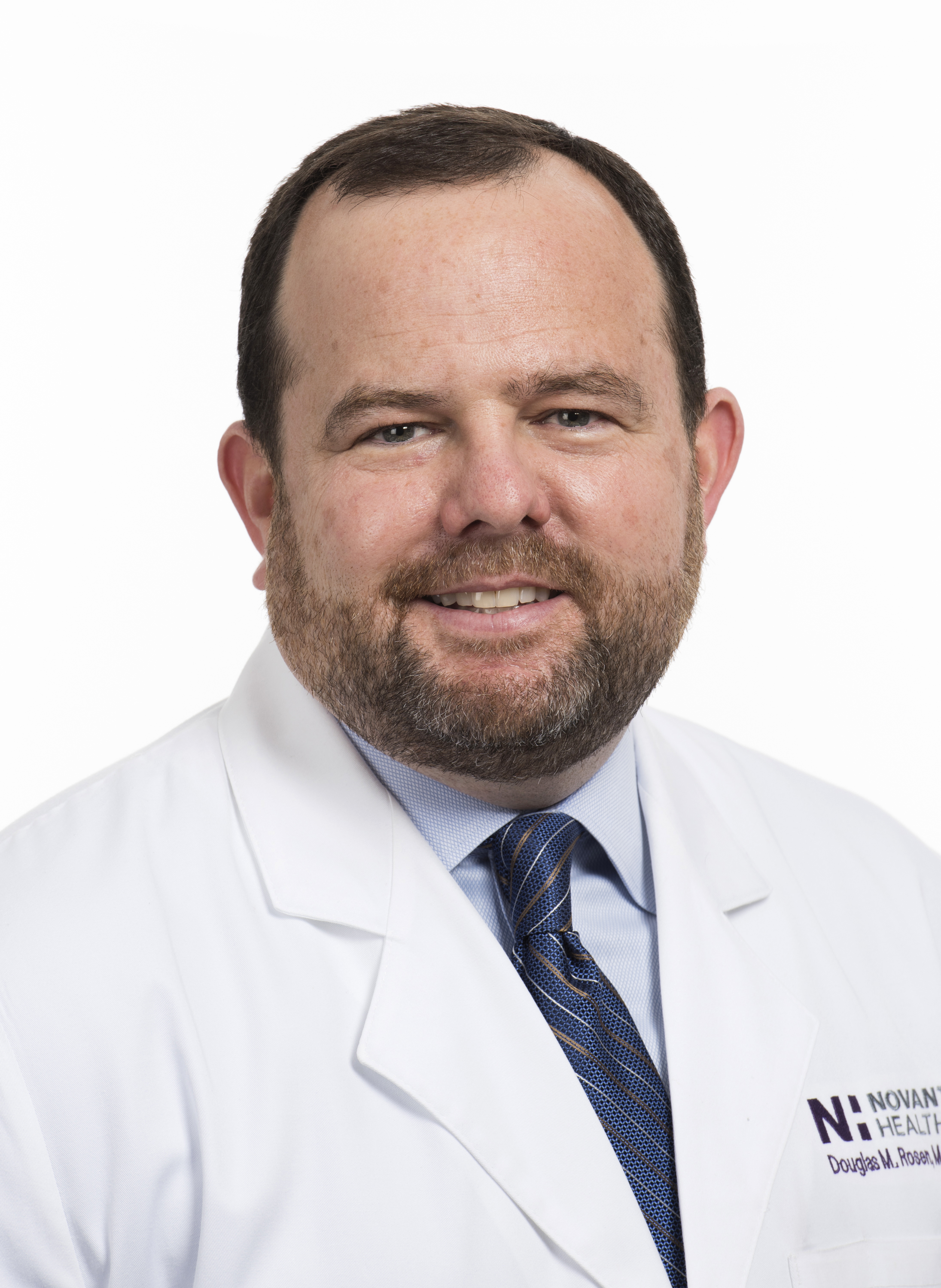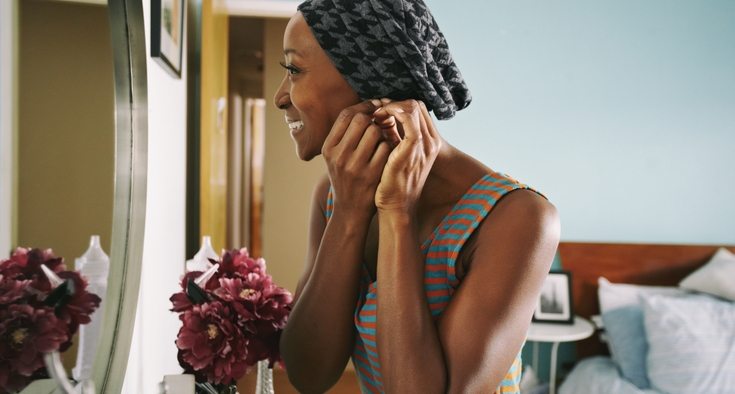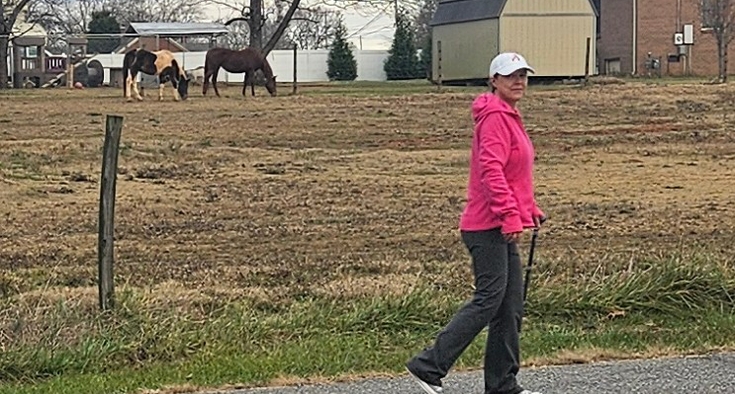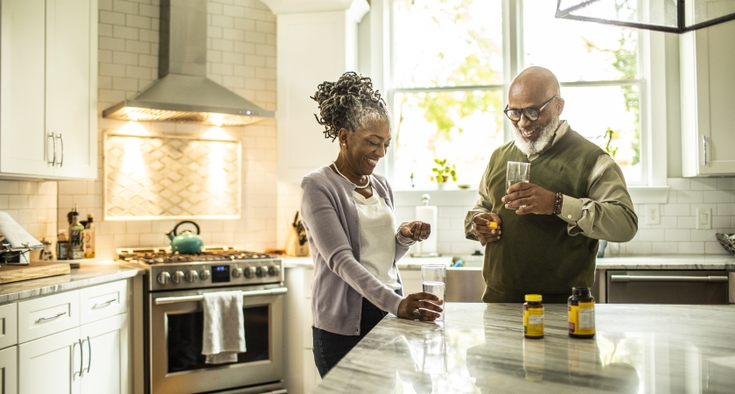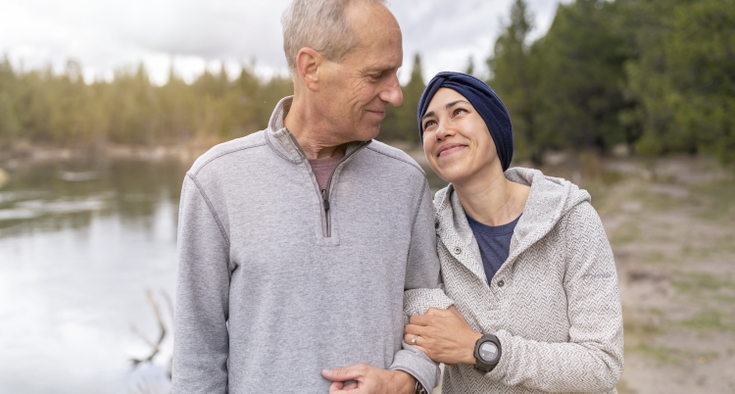Originally from Cameroon in Central Africa, Sa'Youh Tunji had built a life in Charlotte brimming with friends and family. He studied international relations and economics at Eastern Washington University in Washington state, later moving to Charlotte to work as a cloud engineer for a financial services company.
The tech job was rewarding and helped him provide for his extended family. It included wife Marion, a project manager for a finance company; 16-year-old daughter Jaden Celine; and three teenage cousins, Mark Frank, Fabrice and Cynthia, who he and Marion were raising after the death of his uncle.
Tunji also regularly sent money back home to help his mom, Lucia.
With so many people depending on him, he took care to be healthy, exercising regularly and never drinking or smoking. It was out of the ordinary when his stomach began to hurt around Labor Day 2022. He had traveled to Washington D.C. to play in a soccer tournament with his team from Charlotte and guessed he likely had food poisoning.
Get supportive care from colorectal cancer experts.
Yet the pain didn’t let up, and a new symptom developed, blood in his stool. Tunji reached out to his primary care physician. Two months and several procedures later, he learned his diagnosis. Colon cancer. And he met the physician who would lead the fight against it, Dr. Adam Kuykendal, an oncologist with Novant Health Cancer Institute - Matthews.
Tunji was just 41.
During the past three decades, colon cancer rates have been steadily rising in young people. A March 2023 report indicates that the rate of new colorectal cases among Americans younger than 55 years increased from 11% of all cases in 1995 to 20% in 2019.
“The worst three words in any language”
Tunji learned quickly how to advocate for himself. His primary care physician wanted him to get a colonoscopy, but when he tried to book the appointment, he heard none were available until March. The blood in his stools was constant now. He insisted the procedure needed to be earlier and received it in late October.
Tunji cried when he learned the results. He couldn’t help imagining what might happen to his family without him. Tunji speaks English, French, the Cameroonian language of Aghem and some Italian, but said “‘You have cancer’ were the worst three words he'd ever heard in any language. "Nothing prepares you for news like that," he said.

A few days after telling Marion, he sat down with their teens. “Trying to get the words out was hard,” Tunji said. They had many questions. Tunji’s uncle, the father of Mark Frank, Fabrice and Cynthia, had died two years ago from end-stage renal disease. He had become a shadow of himself in his final months. Would that happen to Tunji, too?
The diagnosis was especially shocking given Tunji’s age. The U.S. Preventive Services Task Force recommends a colonoscopy to screen for colorectal cancer – cancers of the colon and rectum – each year starting at age 45. Tunji was several years shy of that benchmark and had been playing defense for his soccer team just a few weeks before the diagnosis. His dad, Augustin, had died of other causes, and genetic testing showed no genetic markers for colon cancer.
“This man knows what he’s doing”
Treatment needed to start right away. A week after the colonoscopy, Dr. Douglas Rosen from Novant Health Charlotte Colon & Rectal Surgery - Matthews performed a robotic, minimally invasive resection, which is surgery to remove tissue or part or all of an organ. Rosen removed the tumor and surrounding lymph nodes. Some stray cancer cells had already entered the lymph nodes.
It was time to meet Kuykendal and form a post-surgery plan. Kuykendal recommended chemotherapy to help reduce the risk of relapse, especially given the lymph node activity. “When you see lymph nodes involved, that can mean cancer cells have spread somewhere else that we can’t detect on the scan,” Kuykendal said. Chemotherapy is designed to knock out those hidden cancer cells.
Top scores for safety in NC
Novant Health just received the most ‘As’ for patient safety in North Carolina from The Leapfrog Group. With a focus on safety, quality and patient experience, the national, industry-leading nonprofit, evaluates and assigns letter grades ranging from A to F to hospitals across the country. Novant Health’s hospitals with “A” grades outperform 70% of hospitals nationwide for safety and quality.
Tunji thought he had come to grips emotionally with the diagnosis. But the fresh wave of results and recommendations made it all the more real. His mom, Lucia, had arrived from Cameroon for support and came with Tunji for an appointment.
She was upset – “lots of tears and prayers,” Tunji said. But after the meeting with “Dr. K,” she told her son, “This man knows what he's doing. He's going to take care of us. You're going to be OK.”
The treatment meant changes at home, too. Chemotherapy “completely beat me up,” Tunji remembered. He couldn’t eat or talk much with his kids. The house had to be impeccably clean at all times, especially his bedroom, to prevent contact with germs that could cause infection. Even their dog, Colie, had to be cleaned and sometimes blow-dried after a walk to make sure he didn’t track in dirt. The kids didn’t love the extra work, but they understood the reasons for it.
Tunji endured four rounds of chemo. “Attitude matters a lot when you’re going through something like this,” Kuykendal said. “He was able to preserve a good attitude and a positive vibe around him.” Tunji also benefited from the support of friends and family. He seldom came to his chemotherapy visits alone.
Last day of chemo T-shirts
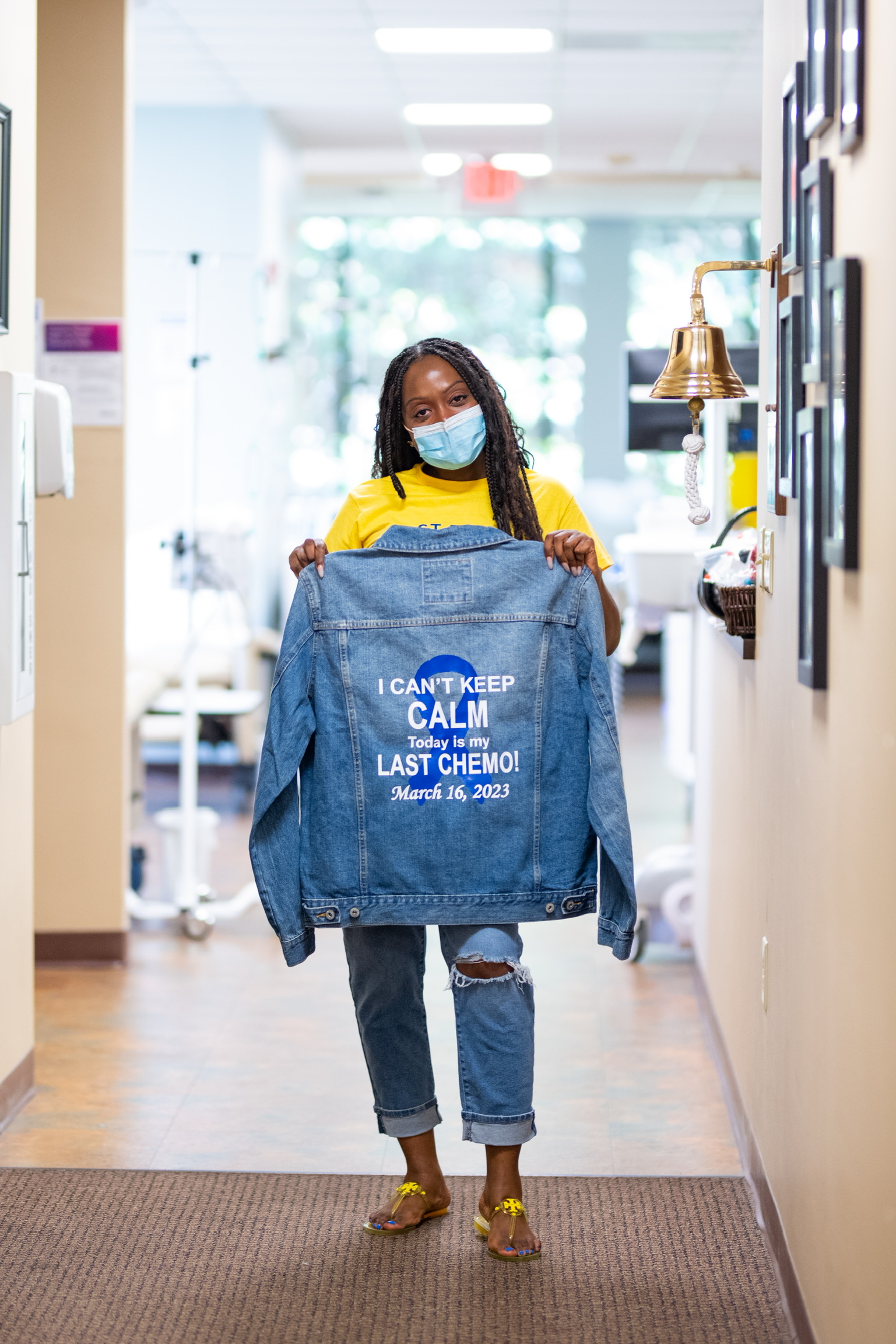
In March 2023, Tunji rang the bell to herald the end of chemotherapy. Marion surprised him by inviting friends and family from Washington, Virginia, and Atlanta to the ceremony, including Tunji’s sister who flew in from the United Kingdom. They all wore yellow “Last day of chemo” T-shirts that Marion had printed with the date. Nurses lined the halls, clapping and cheering as the bell rang. Tunji was dumbfounded and overjoyed.
In remission for a year, Tunji is thriving today. The experience left him changed. “When the challenge comes, you learn a lot about yourself and living a purposeful life,” he said. While he’s not yet back to playing defense on the soccer team, he rallies players from the sidelines.
He also has shared his story with teammates and motivated several to get colonoscopies. One received a diagnosis of Stage 4 colon cancer and is in treatment now. Tunji especially is keen to convince African friends in Charlotte to see a doctor, as he says it's common for them to skip check-ups. His message: Get checked out if something changes in your body, even if you’re young.
He credits Kuykendal as the reason he’s alive. “Dr K. is a true embodiment of someone who cares,” he said. “From the moment I walked into the Cancer Institute, he was very open and honest. He told me ‘Your mindset will help you. You have to make up your mind to do the work. I’m here to guide you through it.’ Dr. K has the ability to gain your trust and make you feel safe.”




